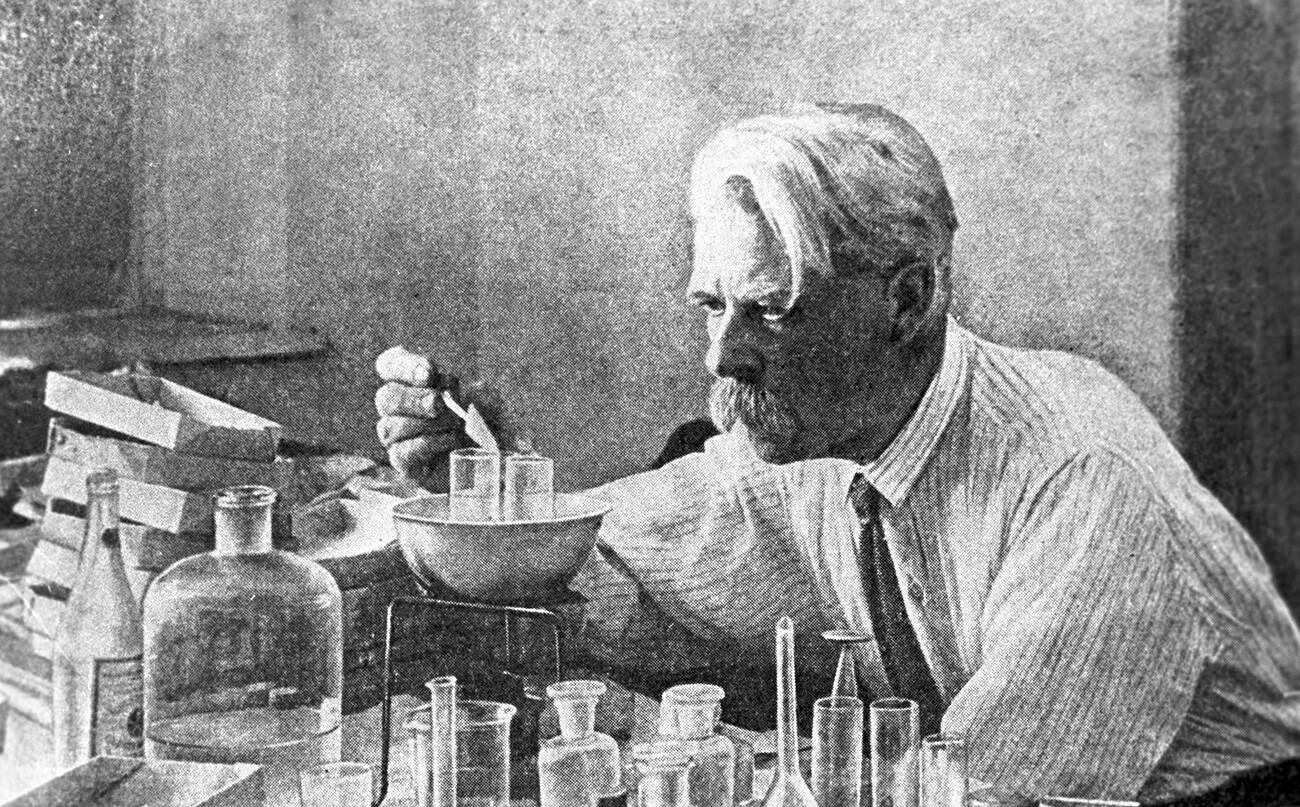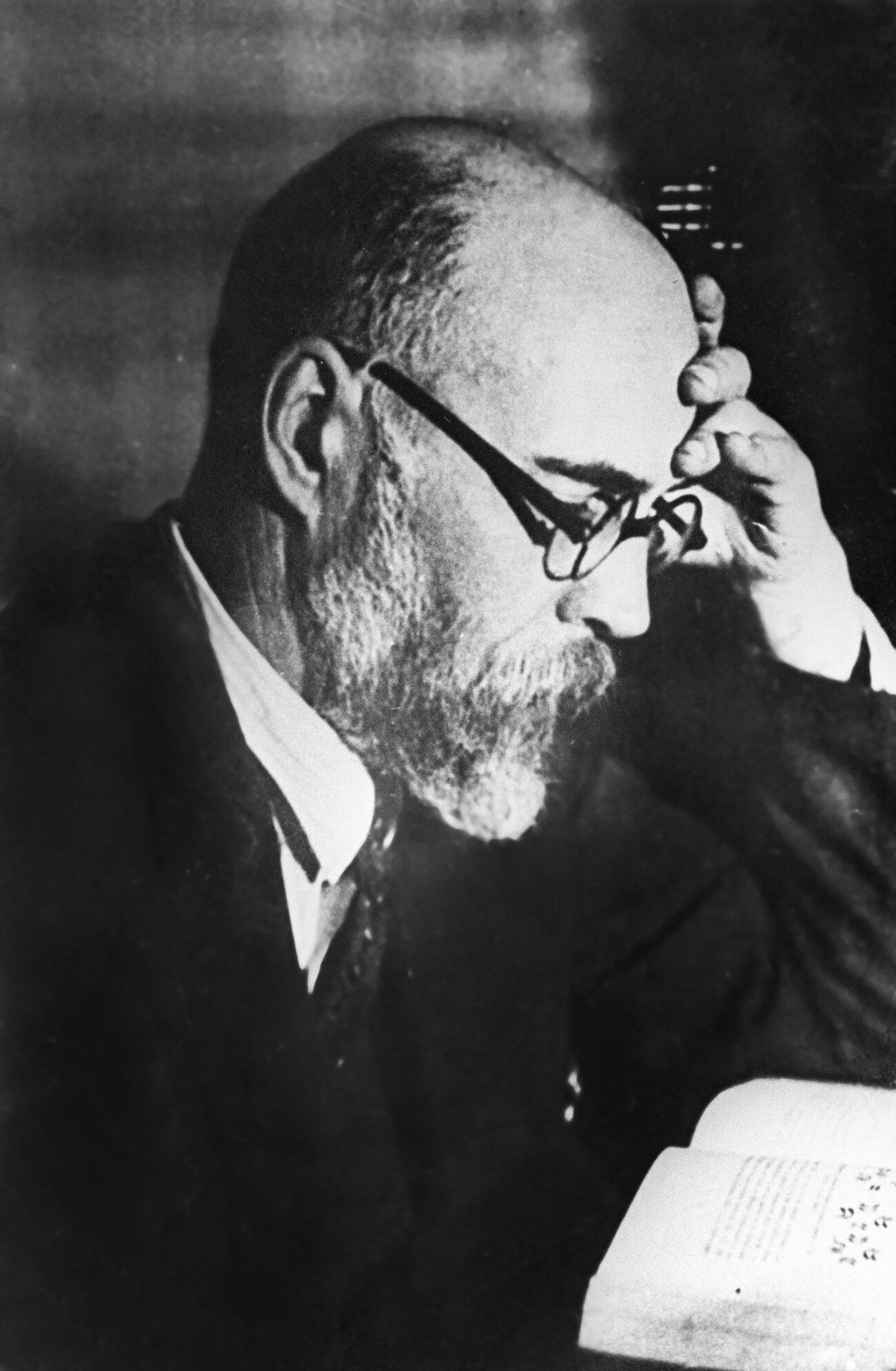
After coming to power in 1917, the Bolsheviks set about radically restructuring Russian society: "We will build our new world. He who was nothing will become everything!"
A "new man" was to live in the "new world" - a comprehensively developed personality, an intellectual and creator deeply devoted to communist ideals, who realizes that he is a small, but important "cog" in the giant machine of the state.
The ideal Soviet man had being created through education, upbringing and propaganda. There was also a very unorthodox approach - to make a "new breed of man", as if we were talking about horses or dogs.

In the first decades of Soviet power, it was adhered to by supporters of Eugenics - the doctrine of improving the hereditary properties of man through selection.
"The breed of every kind of animal and plant, including man, can be changed consciously by selecting such breeders who will give the most desirable combination of traits in the offspring," Soviet biologist and geneticist Nikolai Koltsov once wrote.
Eugenicists urged that talented people who have shown themselves in any sphere should create pairs only among themselves. After all, such parents have a good chance of giving birth to equally outstanding children and, thus, contribute to "brain evolution" and "enrichment of the nation with noble genes".

Nikolai Koltsov.
Nikolai Pashin/SputnikSuch an organized transfer of "valuable genes" could give society many scientists, artists and professionals in various fields - physically healthy, with a strong will, love of life and labor.
"Many mothers of tomorrow, freed from the shackles of religious prejudice, will be proud to mix their plasma with that of Lenin or Darwin and give society a child inheriting their biological qualities," Herman Meller, an American geneticist and corresponding member of the Soviet Academy of Sciences, wrote to Stalin in 1936.
In this way, a “superhuman” would emerge, a "Homo creator" ("Man the creator"), who, according to Koltsov, "must truly become the king of nature and subjugate it to himself by the power of his mind and his will," Nikolai Koltsov argued.
At the same time, Koltsov opposed forced selection. "Modern man," he said, " will not give up the most precious freedom - the right to choose a spouse of his own choice."
The scientist believed that the solution of "eugenic problems" should fall on the shoulders of the state. It is obliged to create more comfortable conditions of existence for "the most valuable producers" than for others. Consequently, the birth rate among them will be higher than among those "incapable of perceiving modern knowledge and modern culture".
Medical scientist Sergei Davidenkov proposed mandatory psycho-eugenic examinations of the population to establish innate giftedness. The level of education, social status and nationality were not supposed to influence the results of testing.
According to the results, people were placed in the highest or lowest ‘genogroup’. The chosen ones received maximum support of the state in the matter of childbearing: salary increase by 50 percent with the birth of each child, payment of one-time bonuses for the third and fourth child, etc.
Geneticist Alexander Serebrovsky, for his part, advocated artificial insemination of women with "recommended sperm", not necessarily from the man they love. "Procreation can and should be separated from love by the mere fact that love is a completely private affair of lovers, while procreation is and, under socialism, even more so should be, a public affair," the scientist argued.
"Socialism," Serebrovsky wrote, "by destroying private-capitalist relations in the economy, will also destroy the modern family and, in particular, will destroy the difference in men’s attitude towards children from their own or not their own sperm."

Alexander Serebrovsky.
Nikolai Pashin/SputnikThe ambitious projects of the eugenicists in the Soviet Union were never realized.
The doctrine was criticized for its disregard for genetic diversity, which is the basis for the harmonious development of society, and for its inability to scientifically justify the criteria by which "valuable producers" could be identified.
The Soviet leadership feared that the breeding approach would hurt its mainstay, the workers and peasants. Finally, for many, eugenicist views were directly associated with fascism and National Socialism.
In the late 1930s, eugenics as a philosophical and ideological concept was banned in the Soviet Union. However, some of its developments (in particular, concerning the treatment of hereditary diseases) found application in various scientific disciplines.
If using any of Russia Beyond's content, partly or in full, always provide an active hyperlink to the original material.
Subscribe
to our newsletter!
Get the week's best stories straight to your inbox